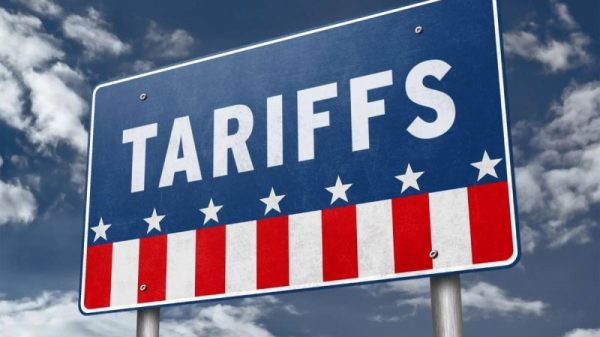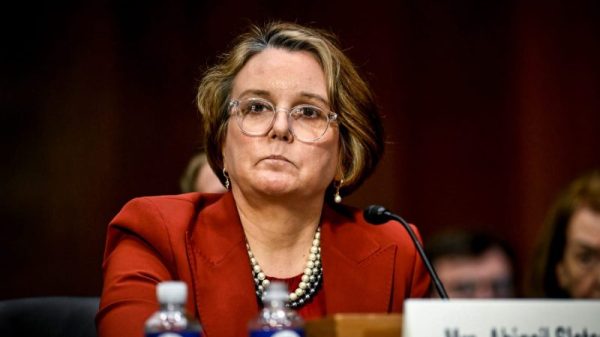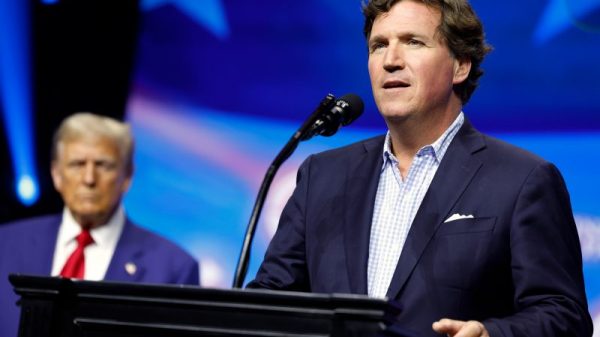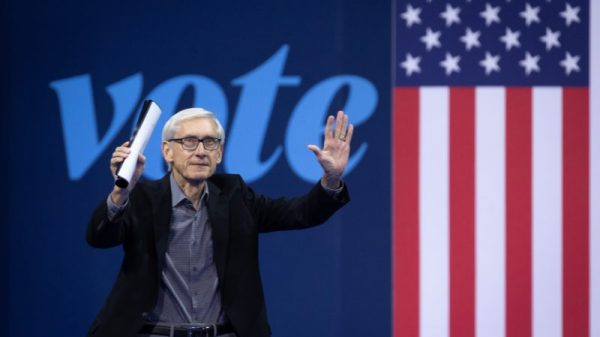
In his ‘Divine Comedy,’ Italian poet Dante Alighieri reserved a special place in the Seventh Circle of Hell for people who charged usurious interest rates. Seven hundred years later, ‘usury’ doesn’t come up much in common parlance, but the problem hasn’t gone away. Last year, both Republicans and Democrats campaigned on providing economic relief to hard-working Americans, particularly with regard to crippling credit card debt. For too long, too-big-to-fail banks have made huge profits by charging outrageously high credit card interest rates. This needs to end. That’s why we’ve introduced legislation to immediately cap credit card interest rates at a maximum of 10%.
Americans are drowning in a record-breaking $1.17 trillion in credit card debt. Thanks to inflation and a sluggish economy, many families have been forced to charge basics like groceries, gasoline and even rent to their credit cards, racking up deep debt. It’s unsustainable — and credit card companies know it. That’s why they’ve hiked interest rates so dramatically.
Meanwhile, these companies are getting richer and richer. In 2022 alone, they made an incredible $130 billion in interest and fees after mailing some three billion solicitations urging Americans to sign up for their credit cards.
And even though Big Banks can borrow money at less than 4.5% from the Federal Reserve, a recent Forbes report found that these same financial institutions are charging the average consumer 28.6% interest on credit cards.
Let’s be clear. When large financial institutions charge over 25% interest on credit cards, they’re not engaged in the business of making credit available. They’re engaged in extortion and loan sharking. And it needs to end.
During the campaign, President Donald Trump pitched an idea that we both support. In September, his campaign promised to cap interest rates at 10% to provide temporary and immediate relief for hardworking Americans who are struggling to make ends meet and cannot afford hefty interest payments on top of the skyrocketing costs of mortgages, rent, groceries and gas.
We agree. That’s why we introduced legislation to deliver on Trump’s promise. By capping credit card interest rates at 10% for the next five years, our bill would give Americans a chance to catch up, offering real relief for working people.
Visa, MasterCard, and American Express will no doubt be actively lobbying Congress against this legislation. That should come as no surprise. After all, over the last five years, these three huge credit card conglomerates made over $145 billion in profits, all while paying their CEOs nearly $375 million in compensation. Their main argument against our bill is that it may restrict access to credit for low-income consumers.
They have it backwards. Our bill would restrict financial institutions from charging working-class Americans exploitative and predatory credit card interest rates that can trap them into a vicious cycle of debt.
Today, a 28% interest rate on a $5,000 credit card balance costs a consumer as much as $11,000 in interest and takes up to 24 years to pay off. Capping credit card interest rates at 10% would save that consumer over $7,200 in interest. Banks would still be able to make over $3,700 off that consumer. They just wouldn’t be able to gouge them.
Our legislation is not radical. It’s what the overwhelming majority wants. A recent poll found that 77% of Americans support capping credit card interest rates.
By capping credit card interest rates at 10% for the next five years, our bill would give Americans a chance to catch up, offering real relief for working people.
When too-big-to-fail banks were on the verge of collapse in 2008 after their greed and recklessness caused millions of Americans to lose their homes, jobs and life savings, taxpayers came to their rescue with a multi-trillion-dollar bailout. But when it comes to helping working families, it seems Congress couldn’t care less.
Now, it’s time for Congress to offer tangible financial relief to working families struggling under the weight of usurious interest rates. Americans need relief. And we can provide it by passing this critical legislation.
Republican Josh Hawley represents Missouri in the United States Senate and is the author of ‘Manhood: The Masculine Virtues America Needs.’






































